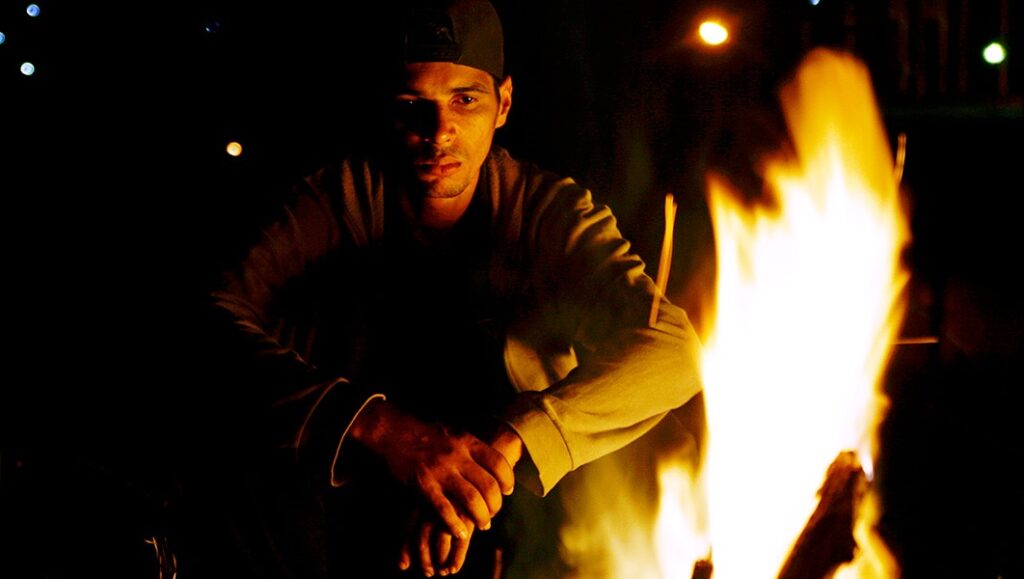The instinct to gather ’round a fire and share stories is as ancient as human urges get. The impulse to make movies in which the primary action unfolds via long-winded speeches delivered to offscreen flames—preferably in long, unremarkable fixed takes—is a more recent anthropological development. Affonso Uchôa is not the progenitor of this movement, but he is among its more visible practitioners. From what I can remember, Araby—his previous film—spent most of its runtime gazing at a migrant worker as he himself gazes at roadside fires, narrating his life story. Though, to be fair, I might just as easily be thinking of Uchôa’s newest film, Seven Years in May. Save for the film’s final scene—in which a crowd of drifters plays a modified version of Red Light, Green Light—it’s composed of the same elements. It seems entirely possible that the first two scenes of Seven Years in May at one point belonged to Araby, before Uchôa snipped them out and had a newly constituted short feature on his hands. (Or is this 42-minute film a long short? I can never remember the rules about these things, but if assessed in purely subjective terms, well, it’s a very long short indeed.)
Regardless, someone’s going to praise Uchôa for his rigorous aesthetic consistency—as ever the true measure of an auteur. To be fair to him, the man has a project. I will not, however, ascribe to any party line that praises Uchôa’s films for their bold fusion of politics and form; half the people who showed up at TIFF this year brought with them a film in which a man wanders through indifferently shot nighttime environments, and it’s unclear why, exactly, the stories of Galician separatists, Brazil’s indigenous populations, and everyone else left behind by the forward march of global inequality deserve the same treatment. Except, of course, that arthouse conventions are just as apt to grow staid and stale with time as any found in popular cinema, and we’ve been staring at this fire for a few decades now. That’s hardly the whole sweep of human history, it’s true, though it feels like an eon for those of us who keep watching these movies. “There’s no night that lasts forever. We have to move on.” I couldn’t agree more.
Published as part of Toronto International Film Festival 2019 | Dispatch 7: Wavelengths Program.


Comments are closed.